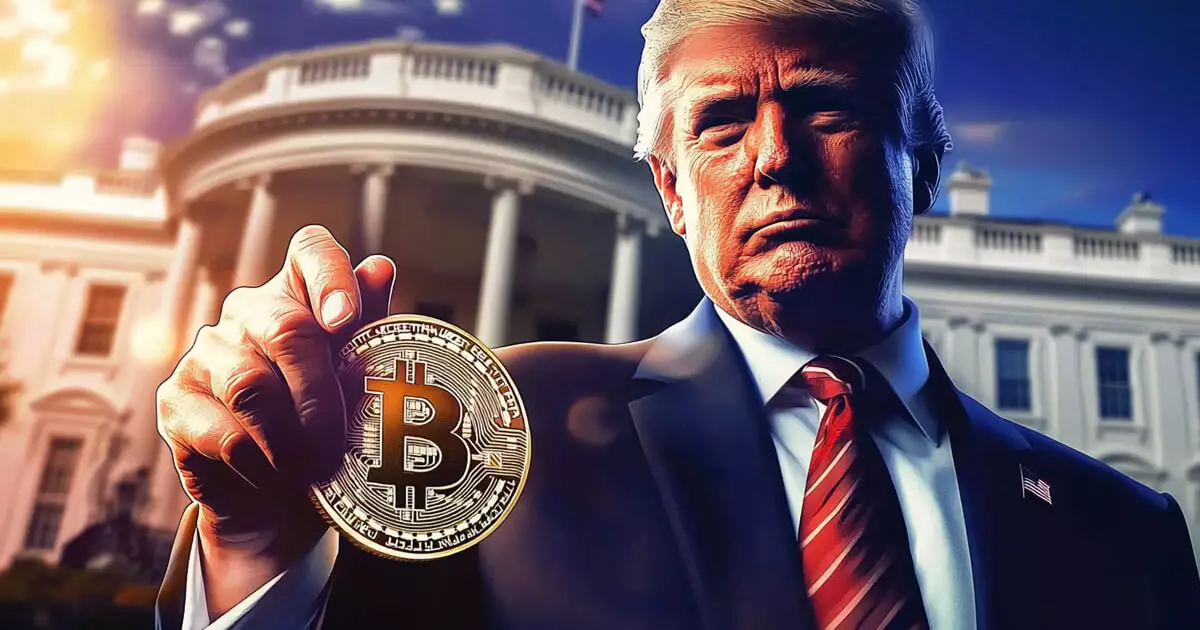The evolving world of digital assets is set to encounter a pivotal moment with the potential introduction of a “crypto czar” in the White House. Reportedly under consideration by the Trump administration, this role aims to provide necessary guidance and direction in the burgeoning $3 trillion cryptocurrency market. With increasing conversations about regulatory frameworks and oversight surrounding this digital frontier, leadership is crucial, and former Commodity Futures Trading Commission (CFTC) Chair Chris Giancarlo—affectionately dubbed “Crypto Dad”—has surfaced as a key contender for this influential position.
Giancarlo’s tenure at the CFTC from 2017 to 2019 was marked by notable milestones, particularly the introduction of bitcoin futures, which garnered both attention and scrutiny. His current engagements, which include advising blockchain initiatives and leading the Digital Dollar Project, underscore his commitment to exploring the implications of digital currencies in contemporary finance. However, despite his advocacy for innovation in financial technologies, Giancarlo’s stance against a federal central bank digital currency (CBDC) aligns with broader sentiments within the Trump campaign that emphasize a limited government role in this evolving financial ecosystem.
Ironically, while some might expect the establishment of a crypto czar to inherently increase regulation, Trump and Giancarlo appear driven by a vision of enhancing growth while maintaining a sensible oversight mechanism—a stance appealing to many in the industry. This reflects a broader pivot away from what some view as the restrictive regulatory environment fostered under the Biden administration.
Despite the enthusiasm surrounding Giancarlo’s candidacy, the notion of a dedicated government role specifically for cryptocurrency has raised eyebrows among some Trump advisors who are skeptical about the necessity and implications of expanding government bureaucracy. Critics argue that this endeavor conflicts with Trump’s overarching promise to streamline government intervention rather than complicate it further. However, given the historical context of cryptocurrency’s burgeoning influence, many industry veterans believe appointing a knowledgeable figure like Giancarlo could provide much-needed clarity and direction.
In this turbulent regulatory atmosphere, Giancarlo’s role as a potential architect of digital asset policy could facilitate a landscape where innovation is encouraged, and companies feel secure in navigating the compliance landscape without the fear of abrupt changes. The proposed presidential crypto advisory council could also prove instrumental in shaping these conversations and policies as they unfold.
The crypto community has largely rallied around the idea of appointing Giancarlo to this newly envisioned role. High-profile figures such as Coinbase CEO Brian Armstrong and Ripple’s Brad Garlinghouse endorse the potential of having a seasoned expert like Giancarlo at the helm of policy direction. His capabilities could reconcile the interests of industry stakeholders with regulatory expectations, fostering a dialogue that promotes development rather than stifles it.
While potential candidates like Brian Morgenstern from Riot Platforms also remain in the fray, Giancarlo’s experience distinctly positions him ahead of the pack. Should this initiative come to fruition, it could herald a significant recalibration in U.S. cryptocurrency policy—striking a balance that champions innovation while appropriately safeguarding public interests.
As discussions around the appointment of a crypto czar continue, it remains clear that the future of digital assets in the U.S. hangs in the balance. With the potential emergence of Chris Giancarlo in this role, the trajectory of cryptocurrency regulation may finally lean towards one of strategic innovation rather than restrictive enforcement—a necessary evolution for an industry poised for tremendous growth. The ongoing debates and developments promise to be an exciting chapter in the story of digital finance.

